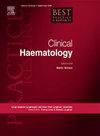人间充质干细胞治疗:减少囊性纤维化感染和器官炎症的潜在进展
IF 2
4区 医学
Q3 HEMATOLOGY
引用次数: 0
摘要
囊性纤维化(CF)支持治疗的创新,包括采用新的抗菌药物、改进的物理治疗和高效的调节剂治疗,已将患者的生存期延长至40年和50年。然而,即使治疗有了这些显著的改善,CF患者仍然遭受肺部感染和其他内脏器官并发症,这些并发症与长期缺乏囊性纤维化跨膜传导调节因子(CFTR)表达有关。人间充质干细胞(MSCs)因其提供间充质组织结构成分的能力而被应用于组织工程。然而,间充质干细胞的另一个作用是,由于其独特的递送环境特异性可溶性生物因子的能力,促进免疫支持的抗菌和抗炎能力,它们作为基于细胞的输注动力的多种用途。从脐带血、骨髓、脂肪和其他组织中提取的间充质干细胞可以通过良好的制造工艺设施在体外扩增,这是一种安全、独特的治疗方法,可以减少和限制CF感染,促进多器官炎症的解决。在我们的努力下,我们进行了广泛的临床前开发和验证,为CF的临床试验做准备。在这个过程中,我们开发了效力模型,以确保MSC产品的功能能力提供临床益处。在体外,利用小鼠体内和患者组织离体效力模型来追踪与CFTR缺乏环境相关的MSC抗感染和抗炎效力。我们在“首发CF”临床试验中表明,从健康志愿者骨髓样本中获得的同种异体间充质干细胞是安全的。改进的CF护理措施和令人兴奋的新小分子的出现改变了CF患者的生存和发病率表型,然而,有些CF患者不能耐受或基因型对调节剂无反应。此外,即使采用小分子治疗,CF患者的寿命更长,但没有基因校正,CF疾病的表现因持续存在的cftr相关临床问题(如持续的炎症)而加剧。MSCs分泌生物活性因子,增强和保护组织功能,促进“自我免疫”调节。这些特性可以为传统的和不断变化的CF疾病临床并发症提供治疗支持。此外,msc衍生的生物活性因子可以通过产生抗菌肽(AMPs)直接降低定植病原体的存活,抗菌肽改变病原体表面,增加宿主对抗生素的识别、消除和敏感性。在此,我们回顾了骨髓间充质干细胞疗法在治疗CF的许多方面的潜力,强调了为控制发病率和生活质量提供巨大的附加疗法的潜力。本文章由计算机程序翻译,如有差异,请以英文原文为准。
Human mesenchymal stem cell therapy: Potential advances for reducing cystic fibrosis infection and organ inflammation
Innovation in cystic fibrosis (CF) supportive care, including implementing new antimicrobial agents, improved physiotherapy, and highly effective modulators therapy, has advanced patient survival into the 4th and 5th decades of life. However, even with these remarkable improvements in therapy, CF patients continue to suffer from pulmonary infection and other visceral organ complications associated with long-term deficient cystic fibrosis transmembrane conductance regulator (CFTR) expression. Human mesenchymal stem cells (MSCs) have been utilized in tissue engineering based upon their capacity to provide structural components of mesenchymal tissues. An alternative role of MSCs, however is their versatile utilization as cell-based infusion powerhouses due to the unique capacity to deliver milieu specific soluble biologic factors, promoting immune supportive antimicrobial and anti-inflammatory potency. MSCs derived from umbilical cord blood, bone marrow, adipose and other tissues can be expanded in ex vivo using good manufacturing procedure facilities for a safe, unique therapeutic to reduce and limit CF infection and facilitate the resolution of multi-organ inflammation. In our efforts, we conducted extensive preclinical development and validation of an allogeneic derived bone marrow derived MSC product in preparation for a clinical trial in CF. In this process, potency models were developed to ensure the functional capacity of the MSC product to provide clinical benefit. In vitro, murine in vivo and patient tissue ex vivo potency models were utilized to follow MSC anti-infective and anti-inflammatory potency associated with the CFTR deficient environment. We showed in our “First in CF” clinical trial that the allogeneic MSCs obtained from healthy volunteer bone marrow samples were safe. The advent of improved CF care measures and exciting new small molecules has changed the survival and morbidity phenotype of patients with CF, however, there are CF patients who cannot tolerate or have genotypes that are non-responsive to modulators. Additionally, even with the small molecule therapy, CF patients are living longer, but without genetic correction, with the CF disease manifestation aggravated by the continuance of pre-existing CFTR-associated clinical issues such as ongoing inflammation. MSCs secrete bio-active factors that enhance and protect tissue function and can promote “self-immune” regulation. These properties can provide therapeutic support for the traditional and changing face of CF disease clinical complications. Further, MSC-derived bio-active factors can directly mitigate colonizing pathogens' survival by producing antimicrobial peptides (AMPs) which change the pathogen surface and increase host recognition, elimination, and sensitivity to antibiotics. Herein, we review the potential of MSC therapeutics for treating many facets of CF, emphasizing the potential for providing great additive therapeutics for managing morbidity and quality of life.
求助全文
通过发布文献求助,成功后即可免费获取论文全文。
去求助
来源期刊
CiteScore
4.20
自引率
0.00%
发文量
42
审稿时长
35 days
期刊介绍:
Best Practice & Research Clinical Haematology publishes review articles integrating the results from the latest original research articles into practical, evidence-based review articles. These articles seek to address the key clinical issues of diagnosis, treatment and patient management. Each issue follows a problem-orientated approach which focuses on the key questions to be addressed, clearly defining what is known and not known, covering the spectrum of clinical and laboratory haematological practice and research. Although most reviews are invited, the Editor welcomes suggestions from potential authors.

 求助内容:
求助内容: 应助结果提醒方式:
应助结果提醒方式:


